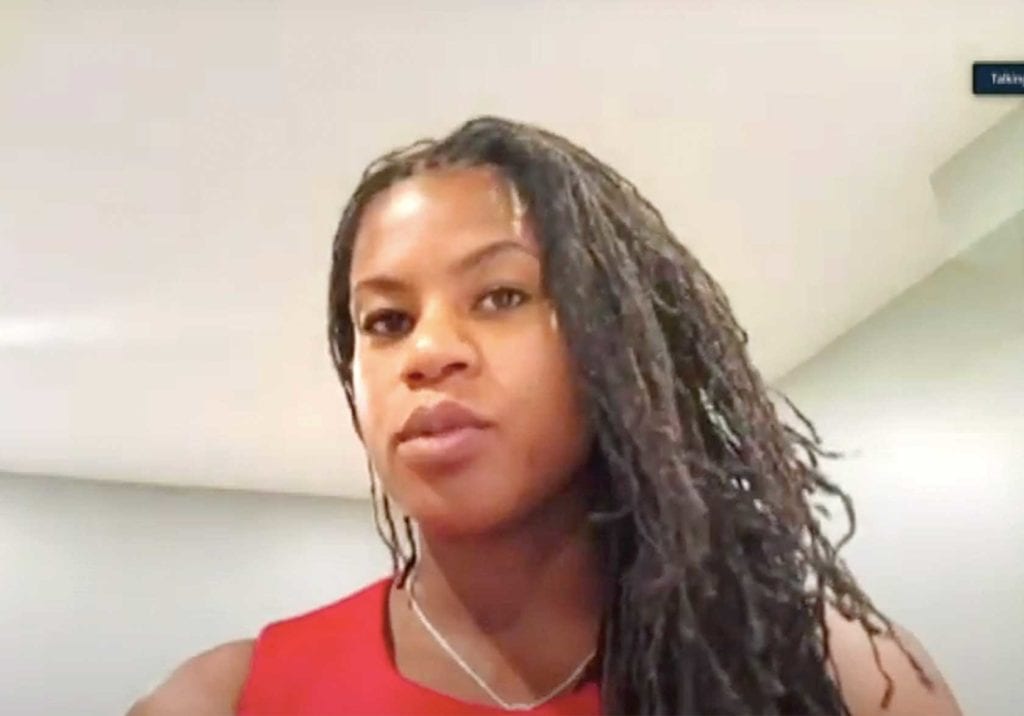
The Boston City Council voted unanimously last week to pass a zoning amendment requiring builders to comply with Affirmatively Furthering Fair Housing principles.
The amendment is meant to prevent displacement as developers create housing opportunities.
This permanent amendment to the zoning code was crafted in a team effort by Mayor Martin Walsh, District 1 City Councilor Lydia Edwards, the Boston Planning and Development Agency, the Office of Fair Housing and Equity, the Boston Housing Authority, the Department of Neighborhood Development and the Mayor’s Commission for Persons with Disabilities. Edwards originally proposed the amendment.
Boston is the first U.S. city to write a fair housing amendment like this into its zoning code.
“We’re seeing development happening in Dorchester, the core of our city. And what we want to do is protect those folks who live in those neighborhoods, and we want to expand the ability to live and stay in your neighborhood,” Walsh said.
Walsh said there is still more demand for housing in Boston than there is supply. Implementing fair housing rules is one of several of the mayor’s initiatives to create more housing for those that need it.
The Obama administration’s Affirmatively Furthering Fair Housing initiative lasted from 2015 to 2019, when the Trump administration rescinded it. Boston is the first city to institute it on a local level regardless of federal input.
Sonal Gandhi, deputy chief of staff of the BPDA, worked closely with the mayor in developing the new requirements. She said that in public meetings about new developments, she heard recurring concerns around affordability, displacement and exclusion.
“How can we address some past histories of exclusion and displacement while providing more access to housing? That is, to really look at the potential impacts of development — not just the physical impacts of development, but how does development impact vulnerable local residents?” Gandhi said.
The amendment requires developers to submit information on the proposed site and the neighborhood it’s in, what effect the development might have on that neighborhood, and how the developers will address the possible impacts. They are given a range of options and must pick one initiative to commit to before their project is approved, and another to commit to after approval.
“The developers that might have been thinking about skirting around the edges won’t be able to,” Walsh told the Banner.
Developers will use an assessment tool created by the BPDA to report the information, then choose initiatives.
“For example … [they could] provide an additional percentage of IDP units higher than required, [or] deepened affordability of IDP [units],” Gandhi said.
IDP refers to the city’s Inclusionary Development Policy, which requires developers either to designate a certain percentage of units for lower- and middle-income households, to create income-restricted units at a nearby site, or to pay into the city’s IDP fund for creating affordable housing. With the new amendment, developers may be encouraged to go beyond the minimum IDP requirements.
Other options developers could choose include providing preference to first-time home buyers, partnering with a nonprofit developer and agreeing to marketing that is inclusive and diverse.
The zoning amendment received minor edits from NAIOP Massachusetts, the Massachusetts commercial real estate development association. Neither group opposed the measure. The BPDA and Mayor Walsh anticipate no backlash from developers.
“NAIOP is committed to combating discrimination and increasing diversity, and we recognize the critical role that development plays in fostering thriving, vibrant communities,” said Tamara Small, CEO of NAIOP, in a statement.
Gandhi said the amendment’s goal is not to deter developers. When considering the developers’ point of view, she said, “One of the key mantras that the BPDA team had, along with elected officials, was, ‘How do we make this clear, consistent, predictable and fair?’”
The amendment also creates the Boston Interagency Fair Housing Development Committee, which will include representatives from all offices involved in creating the amendment. They will review the assessments submitted by developers and meet regularly to monitor the commitments they make.
Developers will also need to complete an accessibility checklist, already approved and widely used in Boston. The checklist was created by the Mayor’s Commission for Persons with Disabilities in 2014, and this amendment would make it a permanent part of the zoning code.
The BPDA will hold a vote on the amendment next week, and if approved, it will go before the Zoning Board of Appeal.






